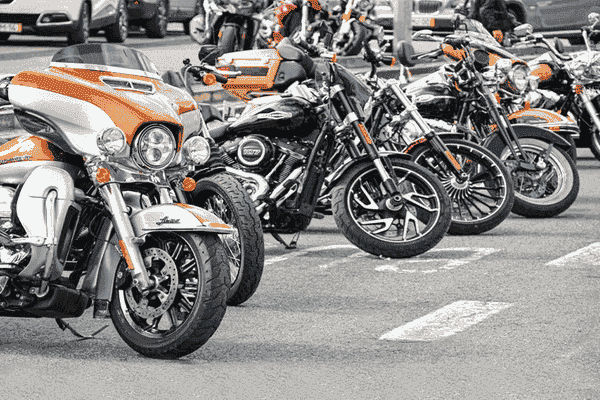
Embarking on the journey to find a motorcycle is an exciting prospect, opening doors to adventure, freedom, and a unique way to navigate the world. Whether you're a seasoned rider looking for a new machine or a newcomer dreaming of your first two-wheeled companion, understanding the landscape of available motorcycles is key. This exploration isn't just about finding a bike; it's about finding the right bike that aligns with your lifestyle, riding aspirations, and importantly, your financial plan. Dive in to discover how to approach the search for a motorcycle with confidence and a clear perspective on your options.
Understanding Motorcycle Categories
Motorcycles come in a dazzling array of shapes and sizes, each designed for a specific purpose or riding style. Familiarizing yourself with the main categories can significantly narrow down your search and help you identify what truly appeals to you. Sportbikes, for instance, are built for speed and agility, often seen on racetracks or winding mountain roads. They typically feature aerodynamic fairings and powerful engines, demanding an active riding posture.
Cruisers, on the other hand, prioritize comfort and style, perfect for relaxed rides and long-distance touring. Think classic designs, comfortable seating positions, and rumbling V-twin engines. These are often associated with a laid-back riding experience and customization possibilities. Touring motorcycles are specifically engineered for long-haul journeys, equipped with features like large fuel tanks, comfortable seats, ample storage, and often advanced electronics like navigation and audio systems. They provide maximum comfort and convenience for extended travel.
Adventure bikes are the versatile explorers of the motorcycle world. Capable of handling both paved roads and off-road trails, they offer a comfortable riding position, robust suspension, and features designed for varied terrain. They are ideal for riders who want the flexibility to tackle diverse environments. Standard or naked bikes are often considered jack-of-all-trades, offering a balance of performance, comfort, and practicality for everyday riding. They typically lack fairings, showcasing the engine and chassis.
Dual-sport bikes are street-legal motorcycles with off-road capabilities, lighter and more nimble than adventure bikes, perfect for riders who want to mix commuting with trail riding. Motocross and dirt bikes are built exclusively for off-road competition and recreational riding, not street legal in most places. Scooters and mopeds, while often considered separate, offer urban mobility solutions, easy to ride and fuel-efficient. Exploring these categories is the first step in understanding the vast world of motorcycles available.
Where to Discover Motorcycle Options
Once you have an idea of the type of motorcycle you're interested in, the next step is exploring where to find them. Dealerships are the primary source for new motorcycles. Visiting a dealership allows you to see the latest models, sit on different bikes, and talk to knowledgeable sales staff. Dealerships often have demo models available for test rides, providing invaluable real-world experience. They also typically offer financing options and maintenance services, adding a layer of convenience and support to your purchase.
However, dealerships aren't the only option, especially if you're exploring pre-owned motorcycles or looking for models that might be less common. Private sellers represent a significant portion of the motorcycle market. Websites, online marketplaces, and local classifieds are popular platforms for connecting with individuals selling their bikes. Buying from a private seller can sometimes offer more flexibility in negotiation, but it also requires more due diligence on your part to assess the bike's condition and history.
Motorcycle auctions can also be a source of potential finds, though they require a different approach and can involve some risk. Auctions may feature everything from seized vehicles to trade-ins. Exploring auction listings requires research and potentially on-site inspection if possible. Online motorcycle marketplaces and forums dedicated to specific brands or types of bikes are also excellent resources. These platforms often list bikes from both dealerships and private sellers, offering a wide selection to browse from the comfort of your home. Attending local motorcycle shows or swap meets can also lead to discovering interesting options and connecting with the riding community.
Tips for Evaluating a Potential Bike
Regardless of where you find a potential motorcycle, a thorough evaluation is crucial. Start with a visual inspection. Look for signs of damage, rust, or leaks. Check the tires for wear and cracks. Examine the chain or belt for proper tension and lubrication. Inspect the brakes, both levers and pads, for wear. Look at the overall condition of the paint, bodywork, and frame. A well-maintained appearance can be a good indicator of how the previous owner cared for the bike.
Next, test the controls. Ensure the throttle is smooth and snaps back readily. Check that the clutch lever engages and disengages smoothly. Test both front and rear brakes. Operate all the lights – headlights (high and low beam), taillights, brake lights, and turn signals. Check the horn. Inspect the suspension by pushing down on the front and rear ends to see if it bounces back smoothly without excessive play or squeaking.
If possible, start the engine (cold is best to check for starting issues). Listen for any unusual noises – knocks, pings, or excessive smoke from the exhaust. Let the engine run for a few minutes to see how it idles and warms up. If you're able to, take the bike for a test ride. Pay attention to how the engine performs through the gears, how the brakes feel, the handling, and any vibrations or noises that seem abnormal. A test ride is the best way to get a feel for the bike's performance and identify potential issues that might not be obvious during a static inspection. Don't hesitate to ask questions about the bike's service history, mileage, and why the current owner is selling.
Budgeting for Your First Ride
Finding an affordable motorcycle involves more than just the sticker price. It's essential to consider the overall cost of ownership. The initial purchase price is just the beginning. You'll need to factor in the cost of registration and taxes, which vary by location. Motorcycle insurance is a significant ongoing expense; obtain quotes before you buy, as rates can vary greatly based on the bike's type, your riding experience, location, and coverage level.
Maintenance is another crucial budget item. Motorcycles require regular oil changes, tire replacements, brake pad replacements, chain adjustments and lubrication (or belt inspection), and periodic servicing. Factor in the cost of routine maintenance and potential repairs. Investing in good quality riding gear – helmet, jacket, gloves, pants, and boots – is non-negotiable for safety and represents an upfront cost. Don't compromise on safety gear; it's an investment in yourself.
Other potential costs include accessories or modifications you might want to add, storage solutions if you don't have a garage, and fuel expenses. When budgeting, consider the total picture rather than just the price tag on the bike itself. Exploring options within your comfortable budget involves looking at different models, ages, and conditions of motorcycles. Sometimes, a slightly older or higher-mileage bike that has been well-maintained can offer excellent value. Researching the typical market value for specific makes and models can help you determine if a price is fair.
The Benefits of Motorcycle Ownership
Beyond the practical aspects of finding and affording a motorcycle, there are numerous benefits to owning one. For many, it's the sense of freedom and connection to the road. The open-air experience is unlike driving a car, offering a more visceral engagement with your surroundings. Motorcycles can also be incredibly fuel-efficient, offering lower running costs compared to many cars, especially for commuting or shorter trips.
In urban environments, motorcycles often offer easier maneuverability and parking. They can reduce commute times by navigating traffic differently where legal and safe. Owning a motorcycle also connects you to a vibrant community. Riders often share a camaraderie and enjoy group rides, events, and meeting other enthusiasts. The skill involved in riding and maintaining a motorcycle can also be rewarding, offering a sense of accomplishment and connection to your machine.
For some, a motorcycle is purely for recreation and adventure, providing access to scenic routes and destinations that might be less appealing by car. Whether it's cruising country roads, exploring off-road trails, or embarking on a cross-country tour, a motorcycle offers unique travel possibilities. Finding the right motorcycle is about balancing your desires with practical considerations and embracing the rewarding experience that comes with two-wheeled travel.
Discovering the right motorcycle requires research, exploration of different types and sources, careful evaluation, and thoughtful budgeting. By taking a comprehensive approach, you can navigate the market effectively and find a motorcycle that not only fits your needs and aspirations but also aligns comfortably with your financial situation. The journey to finding your perfect ride is part of the adventure itself.
